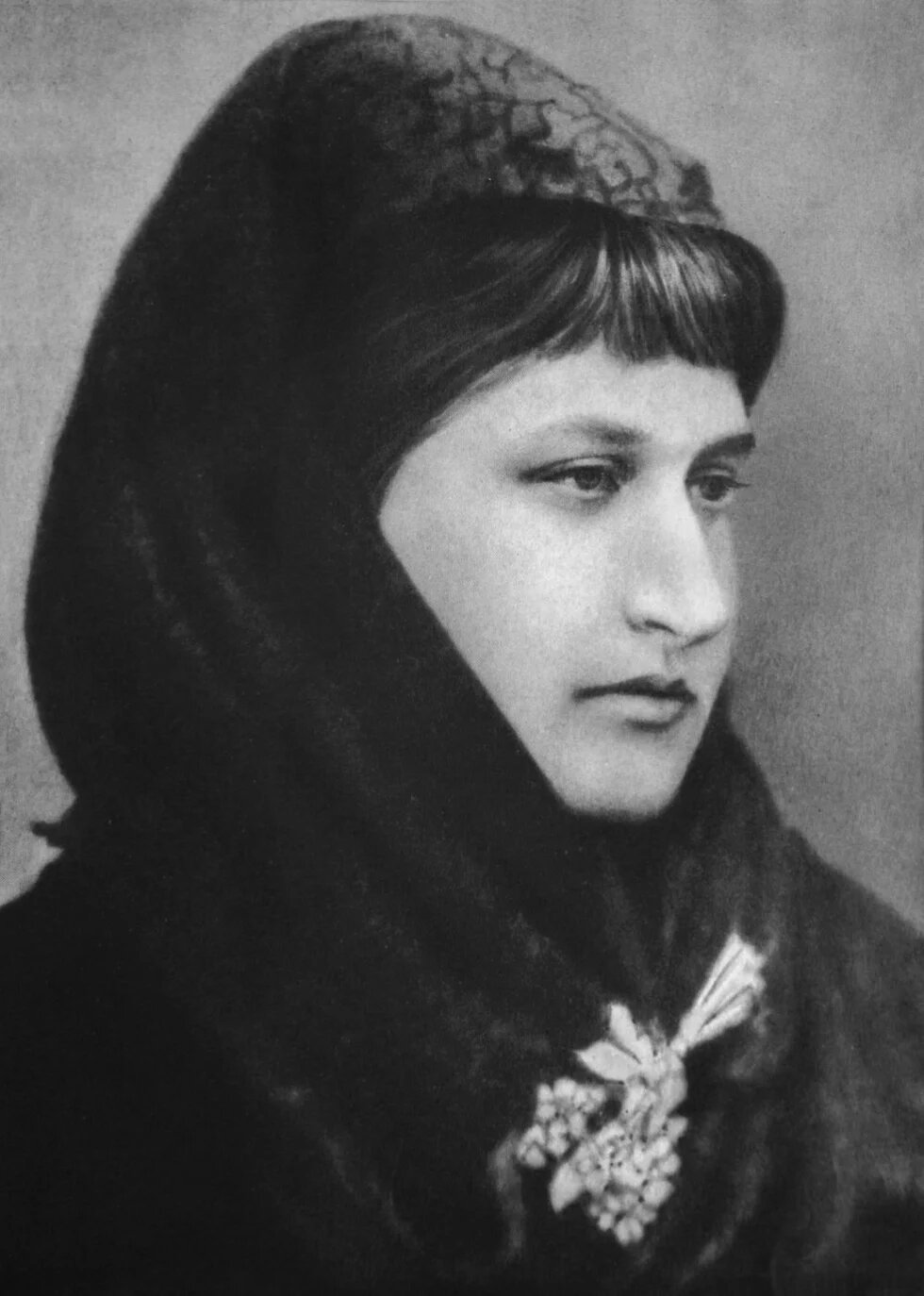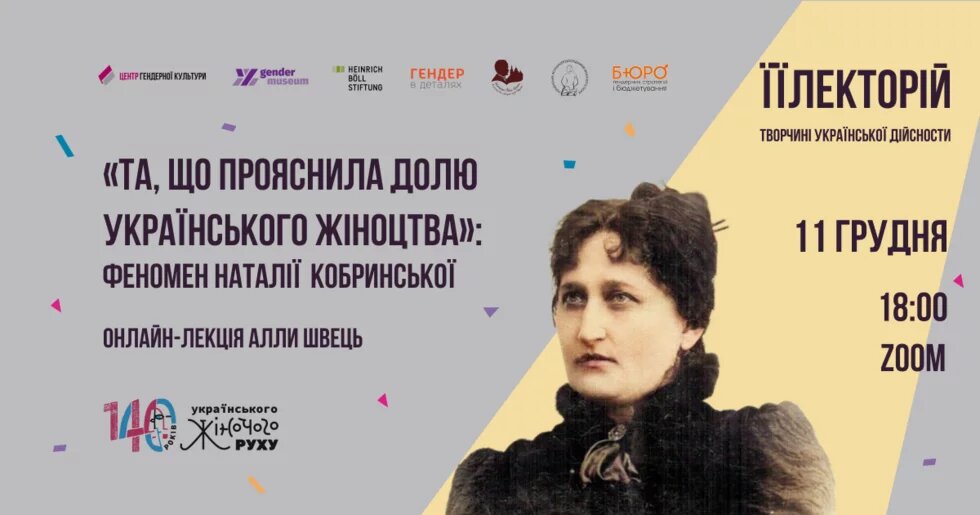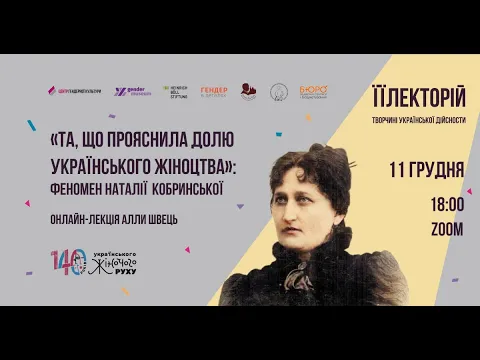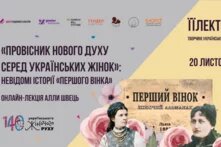

Nataliia Kobrynska is the founder of the Ukrainian women's movement, a writer, translator, editor, and public figure. She is rightly called “the spiritual mother of Ukrainian feminism” (Milena Rudnytska), “a hot and tireless representative of women” (Ivan Franko), who in the mid-1880s laid the foundations for a new worldview and positioning of women in society and formulated the principles of Ukrainian feminism that are still relevant today. On 8 June 1884, Kobrynska founded the first women's institution, “Society of Ruthenian Women”, in Stanislaviv (now Ivano-Frankivsk), and later, together with Olena Pchilka, published the women's almanac First Wreath, uniting women on both sides of the politically divided Ukraine. It was her idea to petition the Austrian parliament for women's access to education and the establishment of kindergartens (so-called zahoronok). When she met Ivan Franko, Nataliia Kobrynska became one of her generation's most prominent figures and leaders.
*Ruthenian — a historical term used in Central and Eastern Europe to designate Ukrainians, particularly in Western regions (Galicia, Transcarpathia) under the Austro-Hungarian Empire.
Nataliia Kobrynska primary goal as a feminist was to “influence the development of the female spirit through literature”, so she created relevant and high-quality lectures for women to shape their intellectual outlook. The publishing series Our Destiny facilitated this, the translation series Women's Library, and her creative heritage, much of which focuses on the images of women. “A feminist gave birth to a writer”, a contemporary noted this significant milestone in Kobrynska's life.
Behind the scenes of Kobrynska image as a “tireless fighter for women's rights” lies her dramatic life story: early widowhood, search for ways of self-expression, misunderstandings with those around her who did not accept her emancipatory ideas, internal hesitations with two versions of her will, the dilemma of choosing between Bolekhiv and Lviv, the problem of renouncing motherhood in favour of public work, the war years, and the tragedy of her dying alone. Valuable documentary artefacts - memoirs of contemporaries, autobiography, and correspondence with the most famous figures of Ukrainian history and foreign politicians - will help us understand this complex world of Nataliia Kobrynska.
Interesting facts about Nataliia Kobrynska life. Throughout her life, she concealed her real age for 4 years. In the history of Kobrynska personal development, a thorough self-education and experience of self-formation as a purposeful path to a goal played an important role. Her contemporaries called Kobrynska “a real lady of society” because her physical beauty, piano playing, extraordinary spirit, and dancehall style always attracted everyone's attention. Her arrival in Vienna, where Kobrynska made her debut as a writer and from where she brought her emancipatory ideas to Galicia, was fateful for her writing career and feminist activities. In her later years, the writer dramatically experienced loneliness and feared old age, illness, and death. The First World War was a great shock for her, but despite her fear, she believed that the consequences of the war could become a historic chance for Ukraine, so she contributed to charity events for the front in every way possible. Kobrynska bequeathed her auto-epitaph on her grave in her will: “My heart no longer hurts.”
The translation from Ukrainian was created with the help of DeepL.
ЇЇЛЕКТОРІЙ: «Та, що прояснила долю українського жіноцтва»: феномен Наталії Кобринської - Genderculture Space
 Watch on YouTube
Watch on YouTube


